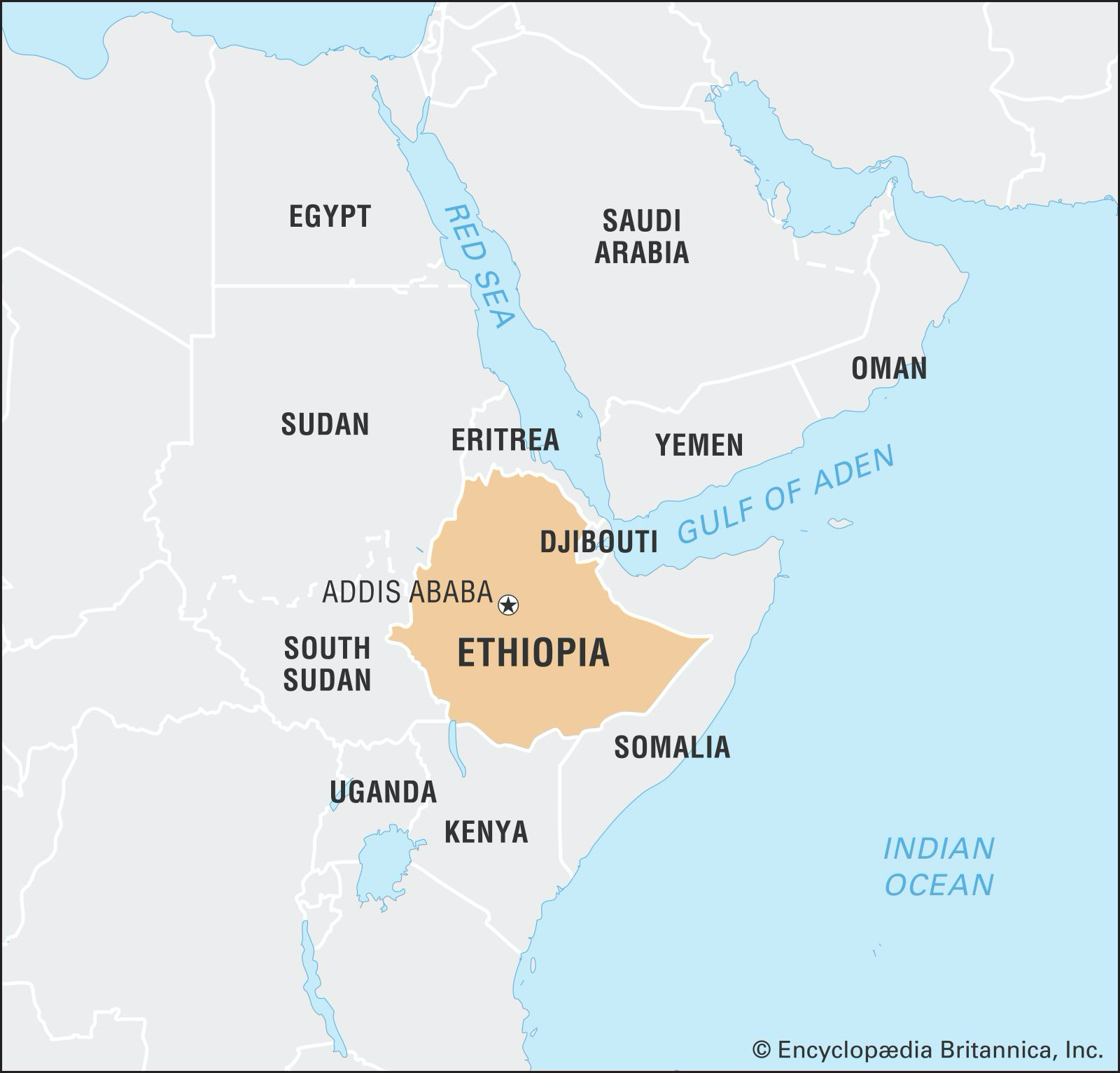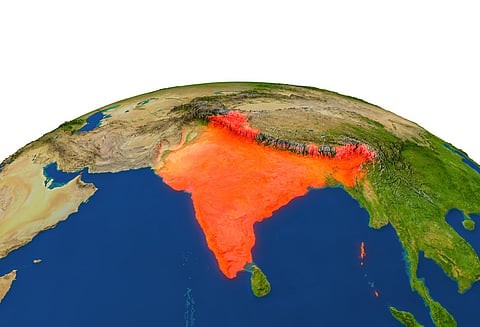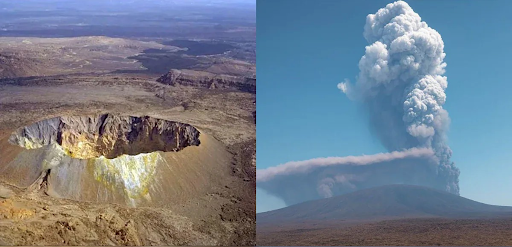Description

Disclaimer: Copyright infringement not intended.
Context
The declaration of a state of emergency in the Amhara region of Ethiopia in response to escalating clashes between the military and local Fano militiamen.
Details
- The Ethiopian government has declared a state of emergency in response to escalating clashes between the military and local Fano militiamen in the Amhara region.
- The situation has rapidly evolved into a security crisis, prompting the regional government's request for federal assistance.
Escalating Conflict in Amhara
- Recent clashes in Ethiopia's second-largest region, Amhara, have escalated into a security crisis, prompting the regional government to seek federal support.
- The clashes between the military and Fano militiamen have raised concerns about stability and order in the region.
Declaration of State of Emergency
- Prime Minister Abiy Ahmed's office announced a state of emergency, granting the government powers to address the situation effectively.
- The declaration empowers the government to ban public gatherings, make warrantless arrests, and impose curfews.
Fano's Evolving Relationship
- Fano was a crucial ally of the military (ENDF) during a two-year civil war in the neighboring Tigray region, but their relationship has deteriorated.
- Recent federal efforts to weaken regional paramilitary groups have strained the previously cooperative relationship between Fano and ENDF.
Intense Fighting in Gondar
- Residents of Gondar reported intense fighting near the university, with conflicting reports of control between ENDF and Fano.
- Fano reportedly pushed back ENDF from the university and attempted to encircle Amhara's capital, Bahir Dar.
Challenges and Communication Disruptions
- Mobile internet remained down in the region, limiting communication and information flow.
- Ethiopian Airlines canceled flights to several Amhara airports due to the escalating situation.
Background and Protests
- Violent protests erupted in Amhara in April following Prime Minister Abiy's order to integrate security forces from Ethiopia's regions into the police or national army.
- Protesters voiced concerns that the integration could weaken Amhara's security and leave it vulnerable to attacks from neighboring regions.
Government's Perspective
- The federal government denied allegations that the integration aimed to weaken Amhara, emphasizing that the objective was to ensure national unity.

About Ethiopia
- Ethiopia, a diverse and historically significant country in the Horn of Africa, boasts a rich cultural heritage, ancient history, and a unique blend of ethnicities.
- Its geographical location, historical landmarks, and socio-economic developments make it a prominent nation on the African continent.
Geographical Landscape
- Ethiopia is situated in the northeastern part of Africa, bordered by Eritrea to the north, Sudan to the west, South Sudan to the southwest, Kenya to the south, Somalia to the east, and Djibouti to the southeast.
- The country's diverse geography includes highlands, lowlands, plateaus, and the Great Rift Valley, contributing to its ecological diversity.
Historical Significance
- Ethiopia is one of the oldest nations in the world, with a rich history dating back to ancient times.
- It is renowned for being the only African country that was never colonized by a European power, which has contributed to its unique cultural identity and sense of pride.
Cultural Diversity
- Ethiopia is home to a wide range of ethnic groups, each with its distinct languages, traditions, and customs.
- The Ethiopian Orthodox Tewahedo Church holds a significant place in the culture, and religious festivals and rituals play a vital role in the lives of its people.
Historical Landmarks
- Lalibela, a UNESCO World Heritage Site, is famous for its rock-hewn churches, showcasing exquisite architecture and religious significance.
- Axum, another UNESCO site, houses ancient obelisks and relics associated with the Kingdom of Aksum.
Language and Literature
- Amharic is the official language, while various regional languages are also spoken.
- Ethiopia has a rich literary tradition, with historical manuscripts, religious texts, and modern literature contributing to its vibrant literary scene.
Economic Growth and Challenges
- Ethiopia has experienced significant economic growth in recent years, with agriculture, textiles, and services being major contributors.
- However, challenges such as poverty, limited access to education and healthcare, and political unrest persist.
Political Landscape
- The Ethiopian People's Revolutionary Democratic Front (EPRDF) played a dominant role in politics until recently.
- Prime Minister Abiy Ahmed's leadership brought about political reforms and led to his Nobel Peace Prize win for his efforts to resolve conflicts with Eritrea.
Cultural Heritage and Tourism
- Ethiopia's historical and cultural heritage attracts tourists, with landmarks like Lalibela and Gondar being popular destinations.
- The country's natural beauty, including Simien Mountains National Park, offers opportunities for ecotourism.
Challenges and Opportunities
- Ethnic tensions, regional conflicts, and the need for sustainable development remain key challenges for Ethiopia.
- The nation's potential for economic growth, its role in regional stability, and cultural preservation are opportunities for its future.
|
PRACTICE QUESTION
Q) Which of the following statements is incorrect with respect to Ethiopia?
A) Ethiopia's strategic location in the Horn of Africa has contributed to its historical significance as one of the oldest nations and its role as a hub of trade and cultural exchange.
B) The Ethiopian Orthodox Tewahedo Church, with its ancient traditions and religious festivals, plays a central role in shaping the cultural identity of the nation.
C) Axum, a UNESCO World Heritage Site, showcases ancient obelisks and relics that offer insights into the historical Kingdom of Aksum and its influence on trade and civilization.
D) The official language of Ethiopia, Amharic, serves as a unifying factor among the diverse ethnic groups and languages within the country.
Answer: D
|

https://indianexpress.com/article/world/ethiopia-clashes-state-of-emergency-declared-8876252/











